Amy Coney Barrett confirmed as Supreme Court justice

Amy Coney Barrett was confirmed to the Supreme Court late Monday by a deeply divided Senate, Republicans overpowering Democrats to install President Donald Trump’s nominee days before the election and secure a likely conservative court majority for years to come. Trump’s choice to fill the vacancy of the late liberal icon Ruth Bader Ginsburg potentially opens a new era of rulings on abortion, the Affordable Care Act and even his own election. Democrats were unable to stop the outcome, Trump’s third justice on the court, as Republicans race to reshape the judiciary. Barrett is 48, and her lifetime appointment as the 115th justice will solidify the court’s rightward tilt. Monday’s vote was the closest high court confirmation ever to a presidential election, and the first in modern times with no support from the minority party. The spiking COVID-19 crisis has hung over the proceedings. Vice President Mike Pence’s office said Monday he would not preside at the Senate session unless his tie-breaking vote was needed after Democrats asked him to stay away when his aides tested positive for COVID-19. The vote was 52-48, and Pence’s vote was not necessary. With Barrett’s confirmation assured, Trump was expected to celebrate with a primetime swearing-in event at the White House. Justice Clarence Thomas was set to administer the Constitutional Oath, a senior White House official said. “Voting to confirm this nominee should make every single senator proud,” said Senate Majority Leader Mitch McConnell, fending off “outlandish” criticism in a lengthy speech. During a rare weekend session he declared that Barrett’s opponents “won’t be able to do much about this for a long time to come.” Pence’s presence presiding for the vote would have been expected, showcasing the Republican priority. But Senate Democratic leader Chuck Schumer and his leadership team said it would not only violate virus guidelines of the Centers for Disease Control and Prevention, “it would also be a violation of common decency and courtesy.” Some GOP senators tested positive for the coronavirus following a Rose Garden event with Trump to announce Barrett’s nomination last month, but they have since said they have been cleared by their doctors from quarantine. Pence was not infected and his office said the vice president tested negative for the virus Monday. Underscoring the political divide during the pandemic, the Republican senators, most wearing masks, sat in their seats, as is tradition for landmark votes, and applauded the outcome. Democratic senators were not present, heeding Schumer’s advice not to linger in the chamber. Democrats argued for weeks that the vote was being improperly rushed and insisted during an all-night Sunday session it should be up to the winner of the Nov. 3 election to name the nominee. However, Barrett, a federal appeals court judge from Indiana, is expected to be seated swiftly, and begin hearing cases. Speaking near midnight Sunday, Sen. Elizabeth Warren, D-Mass., called the vote “illegitimate” and “the last gasp of a desperate party.” Several matters are awaiting decision just a week before Election Day, and Barrett could be a decisive vote in Republican appeals of orders extending the deadlines for absentee ballots in North Carolina and Pennsylvania. The justices also are weighing Trump’s emergency plea for the court to prevent the Manhattan District Attorney from acquiring his tax returns. And on Nov. 10, the court is expected to hear the Trump-backed challenge to the Obama-era Affordable Care Act. Just before the Senate vote began, the court sided with Republicans in refusing to extend the deadline for absentee ballots in Wisconsin. Trump has said he wanted to swiftly install a ninth justice to resolve election disputes and is hopeful the justices will end the health law known as “Obamacare.” During several days of public testimony before the Senate Judiciary Committee, Barrett was careful not to disclose how she would rule on any such cases. She presented herself as a neutral arbiter and suggested, “It’s not the law of Amy.” But her writings against abortion and a ruling on “Obamacare” show a deeply conservative thinker. Full Coverage: U.S. Supreme Court Sen. Lindsey Graham, R-S.C., the chairman of the Judiciary Committee, praised the mother of seven as a role model for conservative women. “This is historic,” Graham said. Republicans focused on her Catholic faith, criticizing earlier Democratic questions about her beliefs. Graham called Barrett “unabashedly pro-life.” At the start of Trump’s presidency, McConnell engineered a Senate rules change to allow confirmation by a majority of the 100 senators, rather than the 60-vote threshold traditionally needed to advance high court nominees over objections. That was an escalation of a rules change Democrats put in place to advance other court and administrative nominees under President Barack Obama. Republicans are taking a political plunge by pushing for confirmation days from the Nov. 3 election with the presidency and their Senate majority at stake. Only one Republican — Sen. Susan Collins, who is in a tight reelection fight in Maine — voted against the nominee, not over any direct assessment of Barrett. Rather, Collins said, “I do not think it is fair nor consistent to have a Senate confirmation vote prior to the election.” Trump and his Republican allies had hoped for a campaign boost, in much the way Trump generated excitement among conservatives and evangelical Christians in 2016 over a court vacancy. That year, McConnell refused to allow the Senate to consider then-President Barack Obama’s choice to replace the late Justice Antonin Scalia, arguing the new president should decide. Most other Republicans facing tough races embraced the nominee who clerked for the late Scalia to bolster their standing with conservatives. Sen. Thom Tillis, R-N.C., said in a speech Monday that Barrett will “go down in history as one of the great justices.” But it’s not clear the extraordinary effort to install the new justice over such opposition in a heated election year will pay political rewards to the GOP. Demonstrations for and against the nominee have been more muted at the Capitol under coronavirus restrictions. Democrats were unified against Barrett. While two Democratic senators voted to confirm
Progressives pledge to keep pushing Joe Biden to expand court
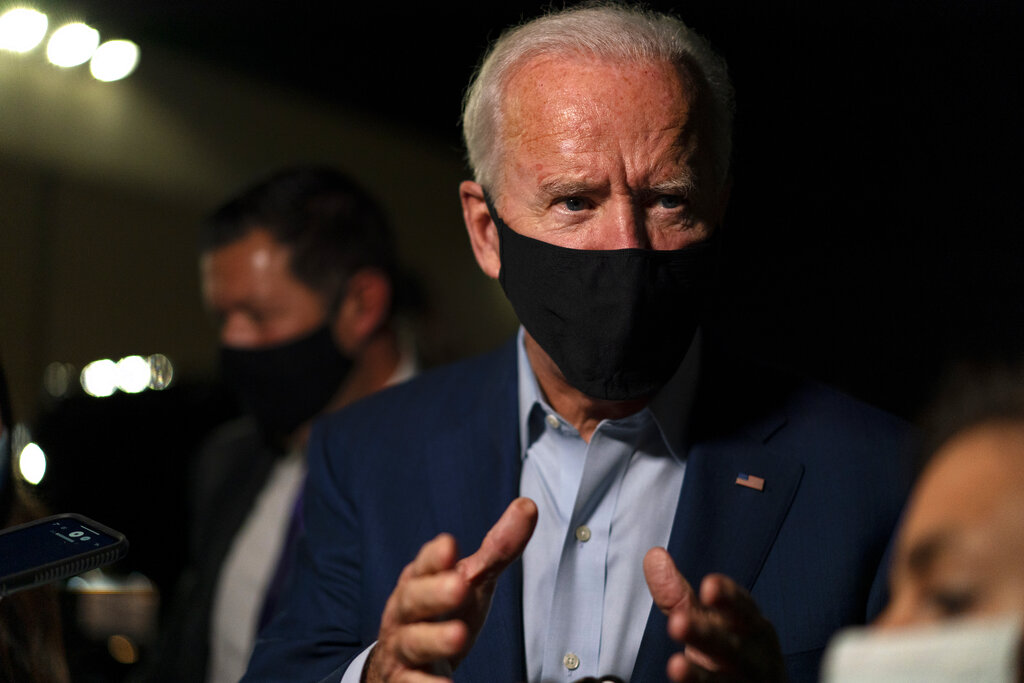
Some activists on the left are pressing Biden to endorse expanding the number of high court justices should he win the White House and Democrats take control of the Senate.
Despite Donald Trump attacks, both parties vow orderly election
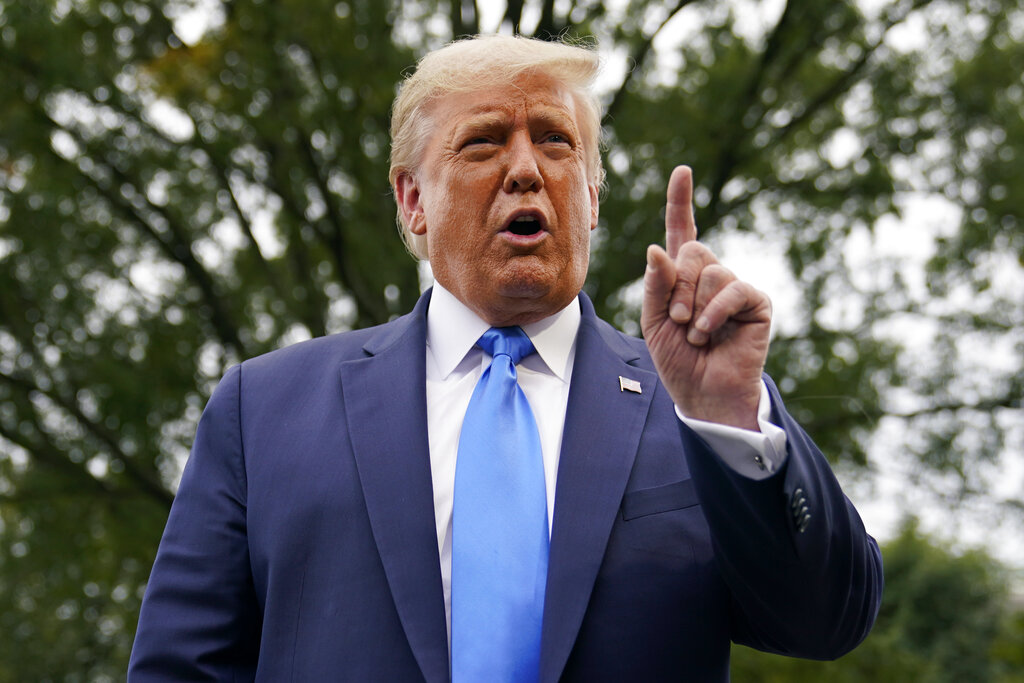
Many lawmakers, including from Trump’s own Republican Party, vowed to make sure voters’ wishes are followed ahead of Inauguration Day in January.
Democrats pound their message: To oust Donald Trump, you must vote
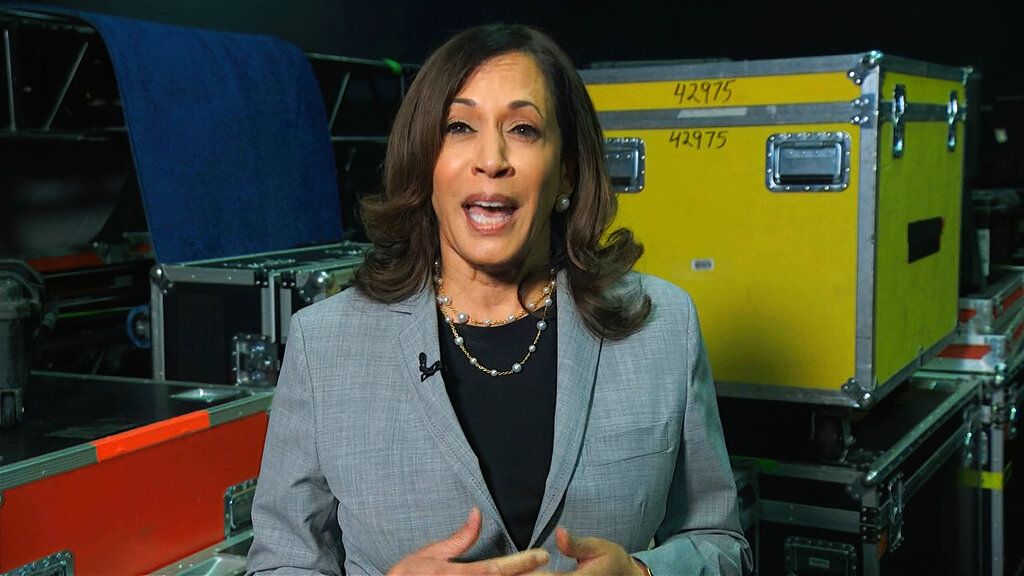
Kamala Harris accepted the Democratic nomination for vice president Wednesday night.
Joe Biden raises $26M in 24 hours after VP announcement
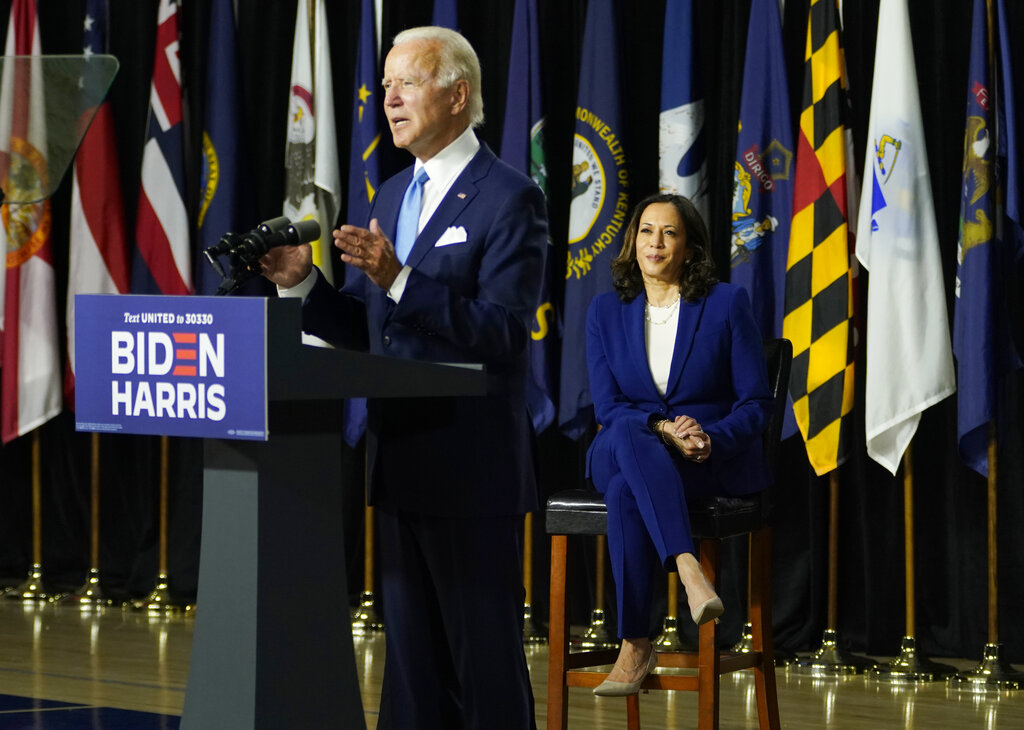
The campaign hopes the haul is the beginning of a prolific fundraising push in the final stretch before Election Day.
Joe Biden selects California Sen. Kamala Harris as running mate

In choosing Kamala Harris, Joe Biden is embracing a former rival from the Democratic primary who is familiar with the unique rigor of a national campaign.
White House, GOP agree to virus testing but aid bill shifts

Senate Republicans and the White House reached a tentative agreement late Wednesday for more testing funds in the next COVID-19 relief package, but deep disagreements over the scope of the $1 trillion in federal aid have forced a shift in strategy. Facing a GOP revolt, Senate Majority Leader Mitch McConnell was preparing to roll out a “handful” of COVID-19 aid bills instead of a single package, according to a top lawmaker involved in the negotiations. The legislation is now expected as soon as Thursday. “Very productive meeting,” Treasury Secretary Steven Mnuchin said while exiting a late session at the Capitol. A key holdup remains President Donald Trump’s push for a payroll tax cut, according to a Republican granted anonymity to discuss the private talks. Hardly any GOP senators support the idea. Instead, McConnell and some Republicans prefer another round of direct $1,200 cash payments to Americans. Mnuchin said the negotiators have agreed to an amount on direct payments, but declined to share details. The rest of the legislation is taking shape even as key Senate Republicans are rejecting the overall rescue, which is almost certain to grow. There will be no new money for cash-strapped states and cities, which are clamoring for funds, but they will be provided with additional flexibility to tap existing aid funds. Republicans propose giving $105 billion to help schools reopen and $15 billion for child care centers to create safe environments for youngsters during the pandemic. The centerpiece of the GOP effort remains McConnell’s liability shield to protect businesses, schools, and others from COVID-related lawsuits. The bills will also include tax breaks for businesses to hire and retain workers and to help shops and workplaces retool with new safety protocols. Still unresolved is how to phase out the $600 weekly unemployment benefit boost that is expiring, starting Friday. Republicans appear to be settling on $200 benefit that would ultimately be adjusted according to state jobless benefits rates. The breakthrough on testing money, though, was key after days of debate between Republicans and the White House, showing a potential shift in the administration’s thinking about the importance of tracking the spread of the virus. Republicans wanted $25 billion but the Trump administration said the $9 billion in unspent funds from a previous aid deal was sufficient. The two sides settled on adding $16 billion to the unspent funds to reach $25 billion, senators said. Despite deep differences among Republicans, McConnell is trying to push forward with what he calls a “starting point” in negotiations with Democrats. “I think what the leader has decided he wants to do is to have a handful of bills now instead of just one bill, so maybe that comes together,” Sen. Roy Blunt, R-Mo., told reporters at the Capitol. Exasperated Democrats warned the GOP infighting with Trump is delaying needed relief to Americans during the crisis, with the U.S. pandemic death toll climbing past 142,000. With millions out of work and a potential wave of evictions ahead, the severity of the prolonged virus outbreak is testing Washington’s ability to respond. Schools are delaying fall openings, states are clamping down with new stay-home orders and the fallout is rippling through an economy teetering with high unemployment and business uncertainty. A new AP-NORC poll shows very few Americans want full school sessions without restrictions in the fall. “We’re hopeful we’ll be able to get there,” McConnell told reporters earlier Wednesday. Pressure is mounting as the virus outbreak deepens, and a $600 weekly unemployment boost and a federal eviction moratorium come to an end starting Friday. But some GOP senators simply oppose big spending. “I just don’t see the need for it,” Sen. Ron Johnson, R-Wis., told reporters Wednesday. Democrats, who already approved House Speaker Nancy Pelosi’s more sweeping $3 trillion package two months ago, said time is running out for Trump and his GOP allies to act. “We’re still on the 20-yard line?” Senate Democratic Leader Chuck Schumer said, referring to White House comments. “Where have the Republicans been?” The White House negotiators, Mnuchin and Mark Meadows, the president’s acting chief of staff, arrived late at the Capitol. After a raucous meeting Tuesday, senators did not discuss the package at Wednesday’s lunch. Still, Meadows said other talks had progressed, pushing Republicans to “the 35-yard line.” As the Republicans battle over their priorities, Democrats warn they are wasting precious time. “We are just days away from a housing crisis that could be prevented,” said Sen. Elizabeth Warren, D-Mass. As Trump and his GOP allies are tangled over details, a stopgap measure may be needed to prevent the unemployment benefits from being shutoff. “We cannot allow there to be a cliff in unemployment insurance given we’re still at about 11% unemployment,” said Sen. Rob Portman, R-Ohio. Portman’s bill to provide tax cuts to retool workplaces with safety features appears to be included. Another Republican, Sen. Joni Ernst of Iowa, has been pushing for child care funds. Of the $105 billion for education, Republicans want propose $70 billion to help K-12 schools reopen, $30 billion for colleges, and $5 billion for governors to allocate. The Trump administration wanted school money linked to reopenings, but in McConnell’s package, the money for K-12 would likely be split between those that have in-person learning and those that don’t. Sen. Marco Rubio, R-Fla., said there will be another boost for small business lending in the Payroll Protection Program. “It’s going to be big,” he said. Mnuchin and Meadows made it clear during a private meeting Tuesday with Pelosi and Schumer that the White House was resisting Democratic proposals for new spending on virus testing, housing aid or money for cash-strapped states, according to a person granted anonymity to discuss the private talks. Republicans said some $150 billion allotted previously to state governments is sufficient to avert sweeping layoffs, and they said more housing protections are not needed. Democrats are calling for $430 billion to reopen schools, bigger unemployment benefits and direct aid checks, and a sweeping $1 trillion for state and local governments. They also want a
Inside the Statehouse: GOP Senate race decided

Steve Flowers discusses the dynamics of last night’s U.S. Senate runoff.
Elizabeth Warren’s outreach to black voters could help VP standing
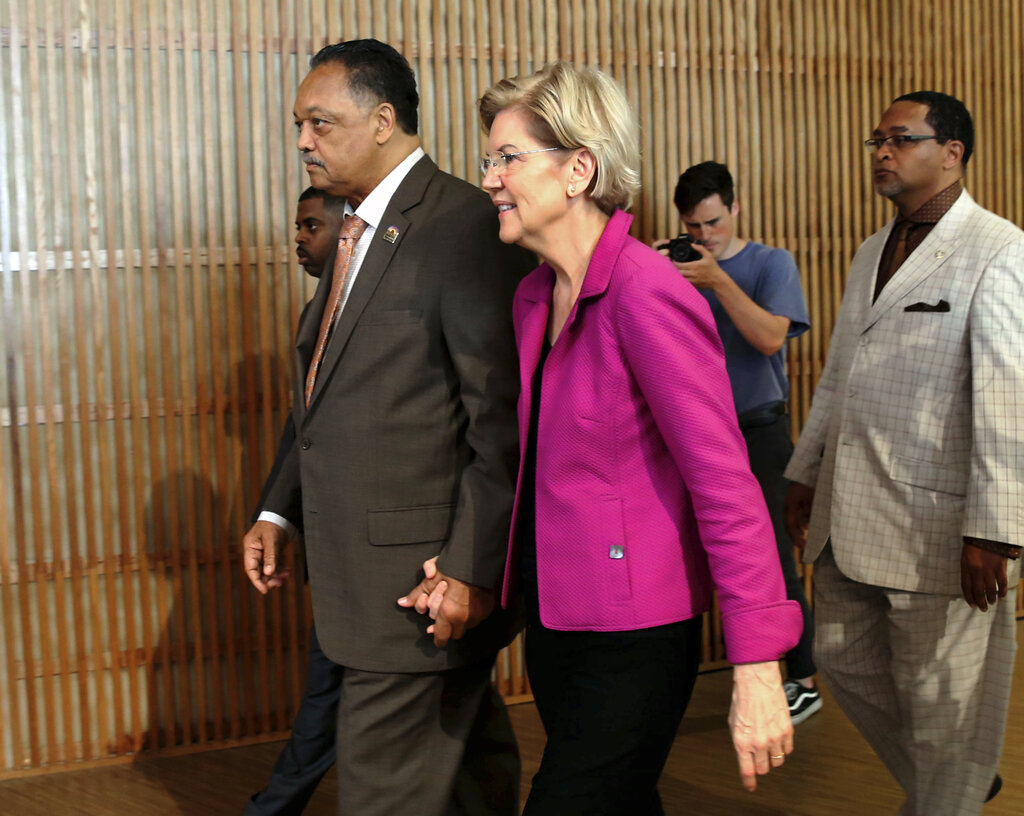
The pair speak frequently, and Warren hosted a virtual fundraiser for Biden on Monday that raised an impressive $6 million.
Joe Biden reaches deal to let Bernie Sanders keep hundreds of delegates
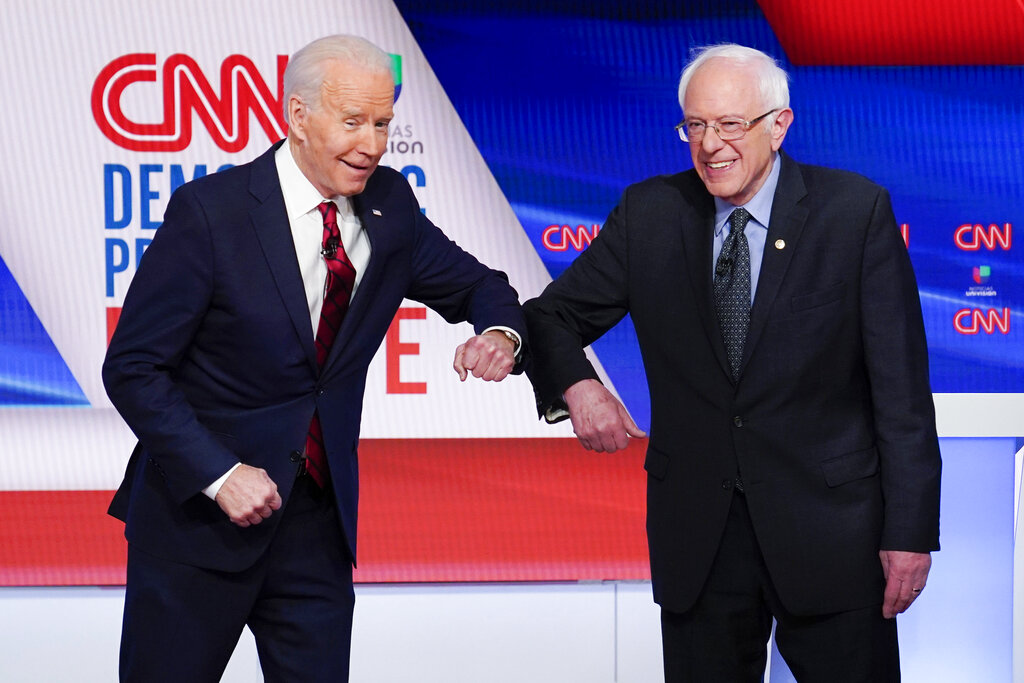
Under party rules, Sanders should lose about one-third of the delegates he’s won.
Michelle Obama’s star power could help Joe Biden unite Democrats
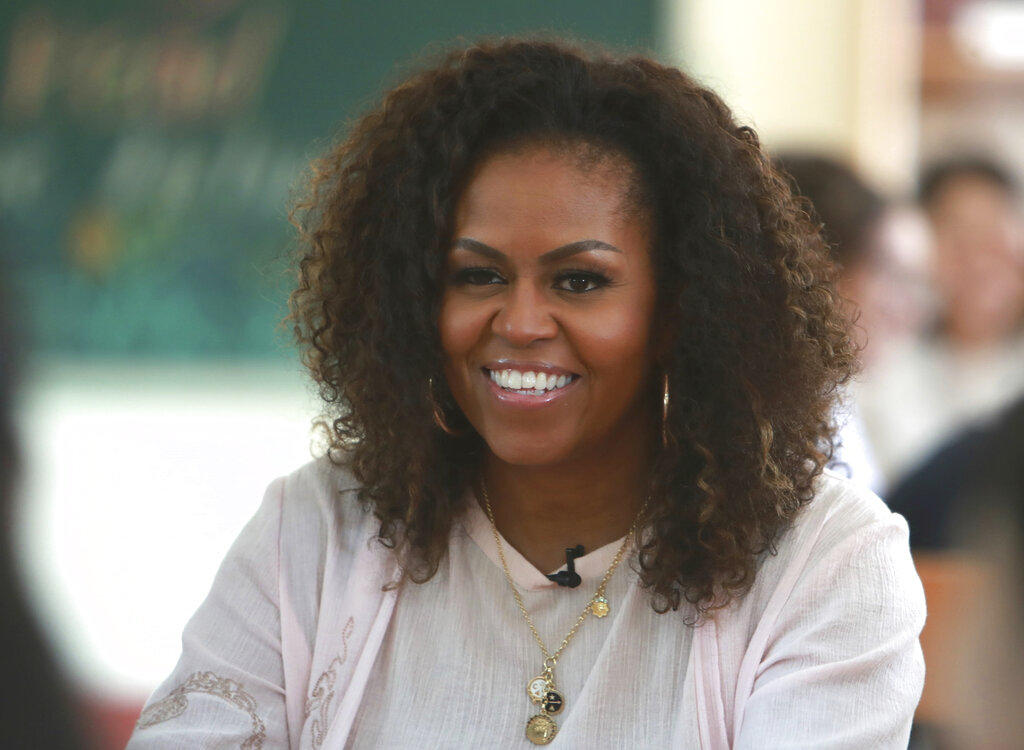
Michelle Obama is exceedingly popular with the party faithful while also having some appeal with Republicans and independents.
Pandemic squeezes finances of Democratic grassroots donors

The coronavirus shutdown has forced Democratic donors to forgo opulent fundraisers.


